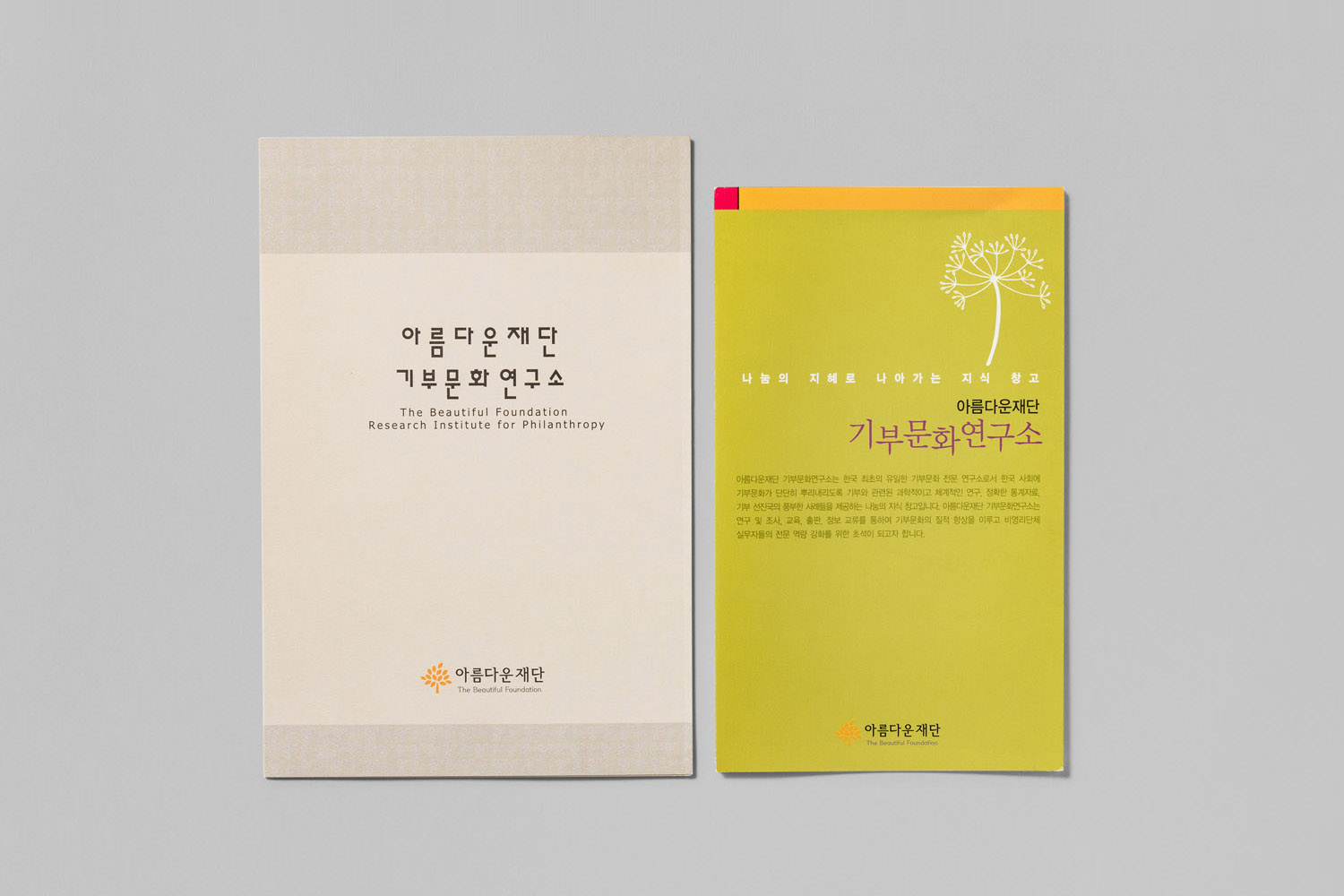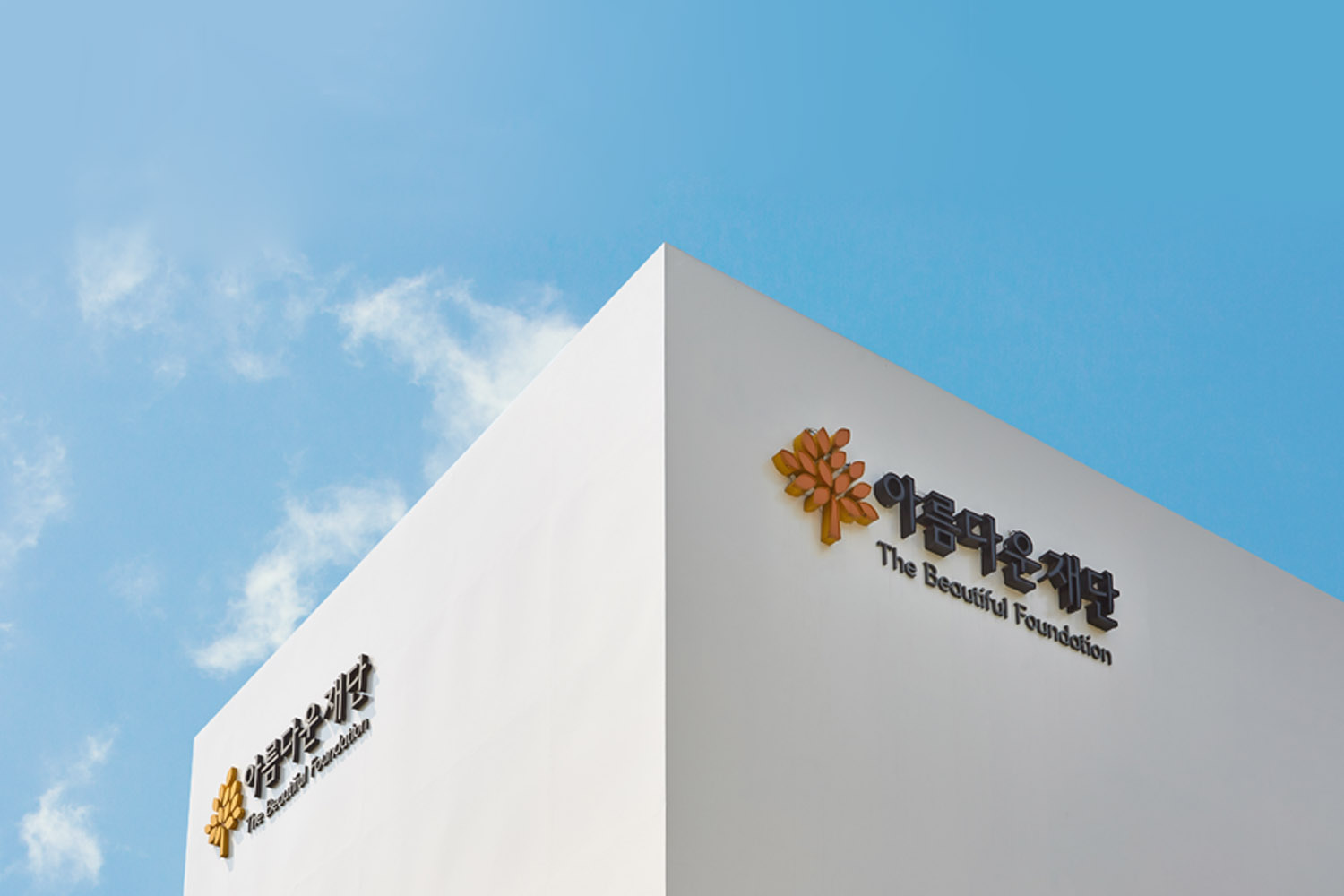Center on Philanthropy
Set up in 2001, Center on Philanthropy at The Beautiful Foundation is the first research hub in Korea wholly dedicated to the study of philanthropy and the nonprofit sector. We facilitate the creation and maturation of a philanthropic culture in Korea through research, educational programs, publication, and forming networks.
For more information on Center on Philanthropy →
Mission
To be a knowledge hub that reads and leads the trends in philanthropy in South Korea.
Vision

Raise public awareness of philanthropy
We hold symposiums and various events on philanthropy and conduct research to raise awareness and support the culture of giving.

Foster research on philanthropy
We conduct and underwrite a broad spectrum of in-depth research and share data both within and outside South Korea.

Hone expertise of practitioners
We provide educational programs, including seminars and conferences, to help practitioners further their expertise.

Enrich activities of nonprofit organizations
We provide studies on NPO management, fundraising, tax and legal issues related to giving, and publish a range of books and materials to maximize the effectiveness of nonprofit organizations.
Research
Giving Korea
Conducted since 2000, Giving Korea is a data-driven study of the giving trends of South Korea. Between 2000 to 2015, we alternated each year between the study of individual giving and corporate giving. Since 2016, we have changed the study of CSR to examining nonprofits. Giving Korea aims to better promote a giving culture and make solid policy recommendations regarding donations in South Korea.
Special Research
Every year, we conduct research projects on specific themes that raise society's awareness of giving, improve the capabilities of nonprofits, and provide more efficient policies.
Global Projects
We also follow international trends in research on philanthropy and participate in collaborative research projects with organizations across the globe, including the Doing Good Index by the Centre for Asian Philanthropy and Society and the Global Philanthropy Index by Indiana University Lilly Family School of Philanthropy to further advance the efforts for a mature giving culture.
Other Papers
We provide papers and translated works on topics relevant for practitioners and the body of philanthropy research.
Symposiums & Seminars
Giving Korea Symposium
We hold an annual symposium where we share the results of Giving Korea and related research projects. The symposium disseminates up-to-date trends and models in philanthropy in Korea and abroad to offer insights into achieving a more creative and mature giving culture in Korea.
Seminars & Special Lectures
Our seminars and special lectures on specific topics allow individuals to exchange ideas about ways to promote philanthropy and to help giving take root among Koreans. The overarching aim is to empower grassroots practitioners and encourage scholars in the field of philanthropy.
Philanthropy Research Centers Network
The Philanthropy Research Centers Network is a network comprising The Center on Philanthropy at The Beautiful Foundation, the Research Center on Philanthropy at Community Chest of Korea, and the Child Welfare Research Center at ChildFund Korea that share knowledge on philanthropy to further the study of philanthropy and expand the culture of giving.
Research Grants
Postgraduate Students' Theses and Reports
Our research grants fund postgraduate students pursuing research on philanthropy-related topics, with the aim to encourage the study of philanthropy and ultimately advance the field.
Publication & Library
Nanum Books Series
Nanum Books (Nanum means 'to share' in Korean) is the book series on philanthropy published by The Beautiful Foundation. The series began in 2001 by the wish of a donor who recognized how the growth of knowledge in philanthropy is central to the development of this field. Books cover philanthropic issues, operation of NPOs, effective fundraising, NPO management, and more.
Library for Philanthropy : Philanthropy Collection
In 2001, The Beautiful Foundation launched the first Library for Philanthropy in Korea in the foundation's office building and open to the public. In 2014, the books were moved to Seoul Metropolitan Library as the Philanthropy Collection after the foundation and library signed an MOU. In 2019 and 2021, we also set up the second and third Philanthropy Collection in Korea University Library in Seoul and in Jirisan Small Change Basecamp in Namwon. We aim to continue expanding our network with other libraries throughout the country.









 top
top